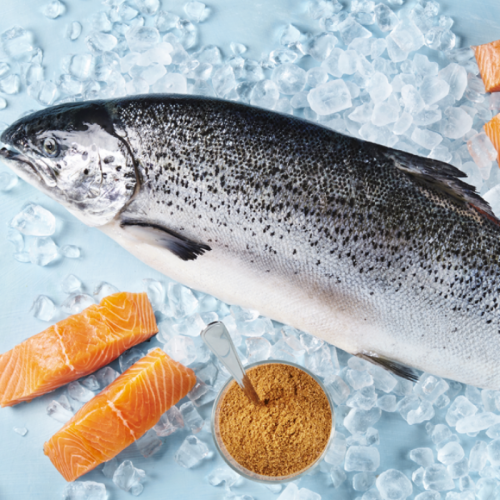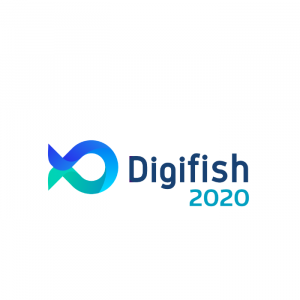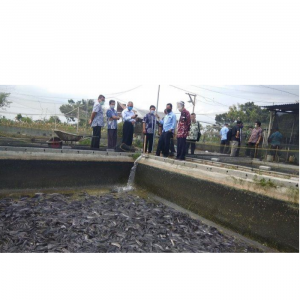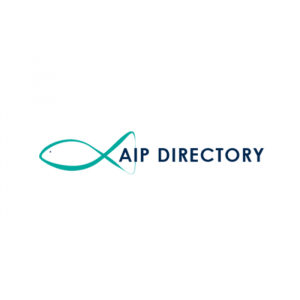
Krill: The Ocean’s Answer to Sustainability
| Mon, 17 Feb 2020 - 10:11
-Known for their innovative work with Antarctic krill (Euphausia superba), Norwegian feed
Ingredient company Aker BioMarine are pioneering the way forward for
sustainable, efficient and resourceful feed for all types of marine creatures.
Their solution? QRILL Aqua.
The QRILL Aqua family of products are exclusively made up from Antarctic krill,
harvested from the Southern Oceans. In 2018 alone, Aker BioMarine contributed
to 325 million extra servings of seafood with their innovative QRILL Aqua line.
Recent statistics suggest that only three percent of the population has
sufficient levels of omega-3 fatty acids, a resource which also isn't easy to
attain with concerns over the sustainability of fishing being highlighted more
and more. Krill is a species here to fix that, rich in omega-3s and a
sustainable solution to the world's protein needs.
What makes krill so
special?
As more research is undertaken about krill benefits, it is becoming more and
more recognised as the wonder ingredient of the sea. Krill boasts a huge
variety of benefits and it is clear to see why Aker BioMarine have invested so
much in this wonderful species.
High in protein and omega-3 fatty acids(as well as omega-6 fatty acids) krill
is a pelagic crustacean with a biomass on earth of approximately 500 million
tonnes, making it one of the most populated species on the earth. The
Commission for the Conservation of Antarctic Marine Living Resources (CCAMLR)
has restricted harvesting of Antarctic krill to one specific region in the
Southern Ocean, and annual krill harvests cannot exceed one percent of their
total biomass in this particular area, but this still enables companies to
harvest more than enough krill to supply feed to all forms of life, whilst also
ensuring that krill as a species remains in bountiful quantities and safely
maintained.
Aker BioMarine ensure to take sustainability very seriously, being the
first krill fishery in history to receive the Marine Stewardship
Council (MSC)'s certification in 2010 and 2015, each certification lasting five
years. The Sustainable Fisheries Partnership, who also analyse fisheries for
the sustainability of their fishmeal and fish oil, has for five years in
a row granted their Atlantic fishery an 'A-rating'.
Krill feed provides a great deal of direct benefits to fish and shrimp that
makes it very attractive as a feed solution. Krill feed is proven to improve growth
and yield in both fish and shrimp, thanks to its digestible peptides and
omega-3 fatty acids bound to phospholipids. Various studies have also been
carried out which show evidence to support krill feed reducing mortality rates
and improving heart health in salmon.
Another valuable feature of krill is that they contain the antioxidant
astaxanthin, which has anti-inflammatory properties, counteracting oxidative
stress and preventing damage to DNA, lipids and proteins. In addition,
astaxanthin provides the pigmentation Choline is also contained in krill which
is crucial for digestive functions, heart, liver and one's cognitive health.
QRILL Aqua
Designed for fish and shrimp, QRILL Aqua is Aker BioMarine's iconic range of
ingredients consisting primarily of krill. All the benefits mentioned
above are transferred directly to the fish upon consumption of QRILL Aqua, and
most omega-3s in the feed go directly to the end consumer, ensuring both
healthy fish and healthy humans.
QRILL Aqua is made up from ground whole Antarctic krill, which is cooked and
dried into a brown-orange powder containing approximately 60 percent protein,
along with a balanced amino acid profile. The final composition also includes
six percent water, 11 percent ash and roughly 25 percent fat, which consists of
those helpful phospholipids (40%), omega-3 fatty acids (20%), EPAs (10%), DHAs
(5.5%) and omega-6 fatty acids (2%).
For fish
Aker BioMarine has a strong research focus and has conducted several studies on
the effects of QRILL Aqua on both fish and shrimp, resulting in some very
positive feedback. In their trials of QRILL Aqua on fish, they discovered a
variety of results:
In European sea bass (Dicentrarchus labrax) juveniles, liver cells of krill meal fed fish presented lower vacuolization levels and in general, lower signs of fat accumulation.
Gilthead sea bream (Sparus aurata) juveniles fed nine percent krill meal had a reduction in the accumulation of lipid droplets in their hepatocytes and around the pancreatic islets
In Nile tilapia (Oreochromis niloticus) juveniles, a growth rate increase of 32 percent was achieved through feeding them 1.5 percent dietary krill meal, compared to the control group
Atlantic salmon (Salmon salar) postsmolts fed krill meal grew on average 174 g more during the pre-harvest phase and four-to-five percent more fillet yield was achieved upon harvest Olive flounder (Paralichthys olivaceus) juveniles fed a nine percent krill meal diet showed a higher survival against bacterial infection with Edwardsiella tarda.
For shrimp
A variety of tests were also conducted on shrimp fed with QRILL Aqua, with
similarly positive results:
A diet with 3 percent krill meal was the most effective in increasing shrimp final body weight and yield in L. vannamei when compared to other marine feed attractants.Compared to one percent dietary krill meal inclusion, yield was increased by 17.6 percent when Pacific white shrimp (Litopenaeus vannamei) were fed two percent krill meal
Replacing parts of fish meal with krill meal in shrimp diets resulted in seven percent savings in grower feed
Pacific white shrimp also displayed increased tail pigmentation when fed astaxanthin krill oil.
Innovating for the
future
Although Aker BioMarine is undoubtedly doing very well for themselves and
proving to be great experts in the field of krill feed, they want to continue
to innovate and learn more about how to further improve their products. To
further this goal, Aker BioMarine established the Open Innovation Programme, a
chance to team up with Aker BioMarine's skilled team of scientists to further
study and develop the future of krill feed and sustainability.
The company welcomes with open arms people who think they have some great
insight into new topics and ideas to explore and research and offer the brilliant
opportunity to research, develop and commercialise new solutions for the
industry.
This unique opportunity will no doubt help discover even more about this unique
species and showcases Aker BioMarine's dedication to a sustainable
solution for the aqua feed industry.
Source: aquafeed.co.uk






















